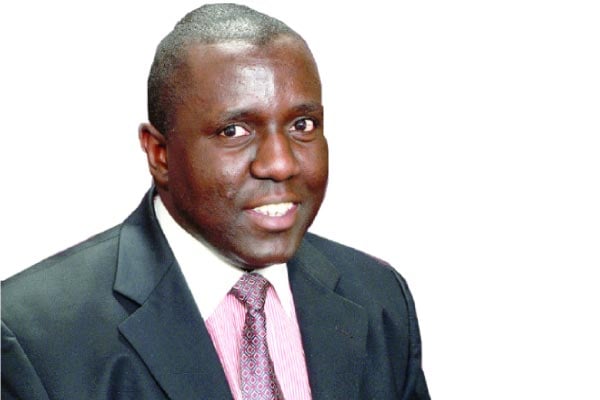Prime
Trump charges: Will US get its own Putin?

Author: Karoli Ssemogerere. PHOTO/FILE
It’s November 7, 2000, an election that found me as a young adult in the United States under my own roof. I had picked up my New York law licence a few weeks before. I had full TV privileges and used them to sleep on the couch as I watched returns from the US presidential election.
There was something even more interesting about this election, a friend of mine, Mark from Colorado had taken leave of absence from his law firm job, and the tyranny of long hours to join the Al Gore campaign. Dow Jones industrials had hit 10,000 points for the first time. Alan Greenspan, had hiked interest rates to a record 8.5 percent to cool off the economy. Higher interest rates mean higher unemployment, drop in asset prices, etc.
Al Gore, Bill Clinton’s Vice President was a point behind George Bush on Labour Day, Americans celebrate Labour in the first week of September. In Uganda, for years, I had been introduced to listening to Public Broadcasting Service (PBS) at the US Embassy’s US Information Service at 11am. The American Embassy on Parliament Avenue opened its doors to the public to listen to PBS.
Inside America though, PBS was spotty at best. American broadcasters delivered the national newscast in the evening, and on big nights like election night, with periodic updates. CNN was the new kid on the block, a product of the remnants of the cold war, distributed both abroad and inside the United States. Bernie Shaw and Judy Woodruff had spelled out that Al Gore would win the presidency if he won Michigan, Florida and Pennsylvania. A few minutes past 7pm, they announced it appeared Al Gore had won all three and was likely the next President of the United States. There was nothing unusual.
In 1996, by the time I got home on my bike from watching the polls, the election had already been called for Bill Clinton. It was a surprise because for all his popularity, Bill Clinton had returned to office with just 49 percent of the vote, but a big majority in the Electoral College. In 2000, Al Gore was ahead of George Bush in the popular vote but he lost the White House.
2000, produced in America the first prelude of the dilemma of very close elections. The confluence of big money, big tech, and the tyranny of the courts was just about to start.
In 1960, another election had been so close, but conventional wisdom for a point was that the two leading parties both did a few things to pad their vote counts. In many big cities, as I later learned, votes also belong to “human machines”.
In 2,000, Ms Hillary Clinton, the First Lady, was elected New York senator, snatching a Republican-held seat. In 2016, she was on the receiving end of a big margin in the popular vote. She paid dearly for again being a point behind on Labour Day 2016, a fall at a church event, and later the FBI’s declaration nine days before the election she was under investigation. Once again, the Republicans carried the White House. Mr Donald Trump had the support of white-collar males, white married women, and a decent share of the Hispanic vote, among others. America 200 years later still votes “tribally”. The Voting Rights Act, 1965 enacted after the race riots in the 1950s, provides where a history of discrimination exists, provision must be made for the prior disenfranchised voters, the African Americans can elect their own representatives.
Fast forward to 2020, Mr Trump attempted to impose a new machine in American politics by declining to concede the election. Scenes of the mob that descended on the American Capitol on January 6, 2021 and his refusal to attend his successor’s inauguration on January 20, 2021 have nearly irreparably damaged the American brand of democracy.
But in 2024, he is still the odds, the favourite to win the Republican nomination. On Tuesday, he was indicted by a Washington grand jury on charges relating to the 2020 election.
We shall know on Labour Day 2024, whether he is a point ahead and as a convict or nearly convicted he is heading back to the White House. One of his big priorities are civil service reforms, removing security of tenure for many civil service appointees, and more presidential authority.
He is channeling more “Vladimir Putin” and the American electorate so far is thoroughly buying it.
Mr Ssemogerere is an Attorney-At-Law and an Advocate. [email protected]


